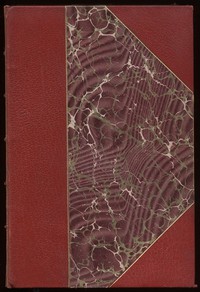Guy Mannering; or, The Astrologer — Complete by Walter Scott (good books to read in english .TXT) 📗

- Author: Walter Scott
Book online «Guy Mannering; or, The Astrologer — Complete by Walter Scott (good books to read in english .TXT) 📗». Author Walter Scott
‘Now that you know my story, you will no longer ask me the reason of my melancholy, but permit me to brood upon it as I may. There is, surely, in the above narrative enough to embitter, though not to poison, the chalice which the fortune and fame you so often mention had prepared to regale my years of retirement.
‘I could add circumstances which our old tutor would have quoted as instances of DAY FATALITY,--you would laugh were I to mention such particulars, especially as you know I put no faith in them. Yet, since I have come to the very house from which I now write, I have learned a singular coincidence, which, if I find it truly established by tolerable evidence, will serve as hereafter for subject of curious discussion. But I will spare you at present, as I expect a person to speak about a purchase of property now open in this part of the country. It is a place to which I have a foolish partiality, and I hope my purchasing may be convenient to those who are parting with it, as there is a plan for buying it under the value. My respectful compliments to Mrs. Mervyn, and I will trust you, though you boast to be so lively a young gentleman, to kiss Julia for me. Adieu, dear Mervyn.--Thine ever, GUY MANNERING.’
Mr. Mac-Morlan now entered the room. The well-known character of Colonel Mannering at once disposed this gentleman, who was a man of intelligence and probity, to be open and confidential. He explained the advantages and disadvantages of the property. ‘It was settled,’ he said, ‘the greater part of it at least, upon heirs-male, and the purchaser would have the privilege of retaining in his hands a large proportion of the price, in case of the reappearance, within a certain limited term, of the child who had disappeared.’
‘To what purpose, then, force forward a sale?’ said Mannering. Mac-Morlan smiled. ‘Ostensibly,’ he answered, ‘to substitute the interest of money instead of the ill-paid and precarious rents of an unimproved estate; but chiefly it was believed, to suit the wishes and views of a certain intended purchaser, who had become a principal creditor, and forced himself into the management of the affairs by means best known to himself, and who, it was thought, would find it very convenient to purchase the estate without paying down the price.’
Mannering consulted with Mr. Mac-Morlan upon the steps for thwarting this unprincipled attempt. They then conversed long on the singular disappearance of Harry Bertram upon his fifth birthday, verifying thus the random prediction of Mannering, of which, however, it will readily be supposed he made no boast. Mr. Mac-Morlan was not himself in office when that incident took place; but he was well acquainted with all the circumstances, and promised that our hero should have them detailed by the sheriff-depute himself, if, as he proposed, he should become a settler in that part of Scotland. With this assurance they parted, well satisfied with each other and with the evening’s conference.
On the Sunday following, Colonel Mannering attended the parish church with great decorum. None of the Ellangowan family were present; and it was understood that the old Laird was rather worse than better. Jock Jabos, once more despatched for him, returned once more without his errand; but on the following day Miss Bertram hoped he might be removed.
Early next morning Mannering mounted his horse and, accompanied by his servant, took the road to Ellangowan. He had no need to inquire the way. A sale in the country is a place of public resort and amusement, and people of various descriptions streamed to it from all quarters.
After a pleasant ride of about an hour, the old towers of the ruin presented themselves in the landscape. The thoughts, with what different feelings he had lost sight of them so many years before, thronged upon the mind of the traveller. The landscape was the same; but how changed the feelings, hopes, and views of the spectator! Then life and love were new, and all the prospect was gilded by their rays. And now, disappointed in affection, sated with fame and what the world calls success, his mind, goaded by bitter and repentant recollection, his best hope was to find a retirement in which he might nurse the melancholy that was to accompany him to his grave. ‘Yet why should an individual mourn over the instability of his hopes and the vanity of his prospects? The ancient chiefs who erected these enormous and massive towers to be the fortress of their race and the seat of their power,--could they have dreamed the day was to come when the last of their descendants should be expelled, a ruined wanderer, from his possessions! But Nature’s bounties are unaltered. The sun will shine as fair on these ruins, whether the property of a stranger or of a sordid and obscure trickster of the abused law, as when the banners of the founder first waved upon their battlements.’
These reflections brought Mannering to the door of the house, which was that day open to all. He entered among others, who traversed the apartments, some to select articles for purchase, others to gratify their curiosity. There is something melancholy in such a scene, even under the most favourable circumstances. The confused state of the furniture, displaced for the convenience of being easily viewed and carried off by the purchasers, is disagreeable to the eye. Those articles which, properly and decently arranged, look creditable and handsome, have then a paltry and wretched appearance; and the apartments, stripped of all that render them commodious and comfortable, have an aspect of ruin and dilapidation. It is disgusting also to see the scenes of domestic society and seclusion thrown open to the gaze of the curious and the vulgar, to hear their coarse speculations and brutal jests upon the fashions and furniture to which they are unaccustomed,--a frolicsome humour much cherished by the whisky which in Scotland is always put in circulation on such occasions. All these are ordinary effects of such a scene as Ellangowan now presented; but the moral feeling, that in this case they indicated the total ruin of an ancient and honourable family, gave them treble weight and poignancy.
It was some time before Colonel





Comments (0)